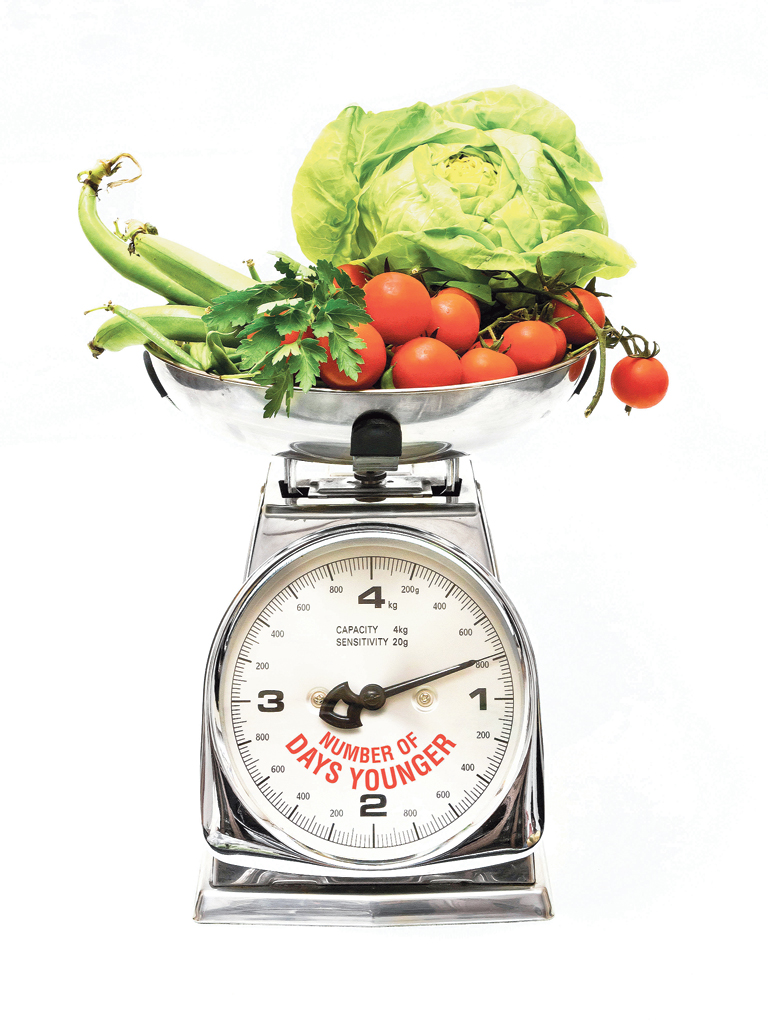How to look younger than your age
without purchasing a single anti-aging product
By Bev Bennett
CTW Features
To take years off your appearance, you don’t need expensive creams or lotions or cosmetic surgery.
By eating healthful foods, staying hydrated, being more active and getting adequate sleep, you can look younger than your age.
“Your outer appearance is a reflection of your inner health,” says Elizabeth Somer, registered dietitian, Salem, Oregon.
Foods that are rich in vitamins, minerals, antioxidants and beneficial fats will enhance skin color. Getting the recommended amount of exercise each day will result in youthful energy. Better sleep habits will be reflected in an appealing skin tone, health experts say.
“You can put all the $100 creams on your skin, but if you don’t follow a healthful diet, it won’t show up on your skin,” says Somer, author of “Eat Your Way to Sexy” (Harlequin, 2011).
Start with consuming colorful produce, which contain plenty of antioxidants that may help prevent skin damage.
“Antioxidants fight free radicals that cause skin aging,” says Keri Glassman, registered dietitian, New York City.
These plant foods are high in antioxidants and protective vitamins and minerals, including vitamins A, C and E and the mineral selenium.
Orange or green fruits and vegetables such as apricots, sweet potatoes, cantaloupe, carrots, spinach, collard greens and romaine lettuce are high in Vitamin A, which helps turn skin cells.
Vitamin C helps the body synthesize collagen, which gives skin its elasticity. The vitamin also helps prevent and treat damage from ultraviolet rays.
You can get your fill by eating citrus fruit, strawberries, cantaloupe, cabbage, Brussels sprouts, tomatoes and bell peppers.
Then add nuts.
Brazil nuts, for example, are a good source of selenium, which is good for your hair and skin, according to Glassman, nutrition expert for the HLN upwave program, “Cook Your Ass Off.”
Other nuts and nut products are also beneficial.
“Nut butter is important to keep skin youthful. And nuts are high in vitamin E, an antioxidant. Sun exposure may deplete vitamin E from the skin,” Somer says.
Don’t be so fat-phobic that you overlook fatty fish.
“Omega-3 [fatty acids] in sardines, mackerel and salmon have shown great promise in keeping skin moist, supple and youthful-looking,” says the Oregon dietitian and author.
Those are the important go-to foods; now add beverages.
You know how dragged out you feel when you’re dehydrated?
It shows.
“When I’m not hydrated I look five years older,” Glassman says.
Make water your first choice.
“Drink it slowly throughout the day rather than gulping it,” Somer says.
Contrary to former thinking, coffee and tea also count toward getting enough fluids, according to Somer.
Get into the exercise habit so your blood is circulating, you’re building youthful muscle and maintaining a healthy weight.
You’ll look and feel better if you’re not gaining, losing and regaining pounds, Glassman says.
Do at least 150 minutes of moderate-intensity aerobic activity each week, and in addition, do muscle-strengthening exercises two or more days a week (according to recommendations from the Centers for Disease Control and Prevention).
An exercise routine may also improve your sleep. You’ll look and feel younger if you’ve had a good night’s sleep, and there’s science to back that up.
Inadequate sleep may lead to premature skin aging and less ability for skin to recover after sun exposure, according to recent research at University Hospitals (UH) Case Medical Center, Cleveland.
In a study of 60 women between the ages of 30 and 49, half had poor sleep quality. In various tests, the sleep-deprived women showed greater signs of skin aging, including fine lines, uneven pigmentation and slackened skin, according to researchers.
However, that’s probably no surprise. You know how haggard you look after a sleepless night.
People who are sleep deprived are judged as looking less attractive in various studies, according to Kelly Glazer Baron, assistant professor of neurology, director of the behavioral sleep medicine program, Northwestern University, Feinberg School of Medicine, Chicago.
“Being exhausted and fatigued will show up on facial expressions. You can see the effects of sleep loss almost immediately,” Baron says.
Adults should get seven to nine hours of sleep a night; older adults need seven to eight hours total, according to the National Institutes of Health.
© CTW Features
Aging foods
“When your skin dries out, it looks bad. You want to keep that from happening,” says Keri Glassman, registered dietitian, New York City.
“Wrinkles happen with sugar, salt and trans fats,” she says.
Inflammatory stress can affect your looks and well being.
“Unprocessed food will give the body the building blocks it needs to protect against stress,” says registered dietitian Elizabeth Somer.
© CTW Features

